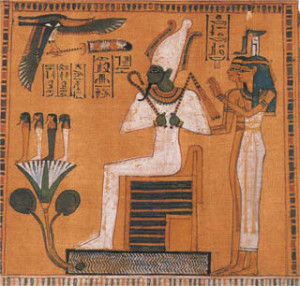St Paul appealed to the existence of numerous living witnesses to Jesus of Nazareth, risen from the dead.
Mainstream New Testament scholarship on the Gospels is considerably more conservative than it was, say, forty years ago. For example, the greater number of New Testament critics seemed to agree as a kind of in-house duty that the Gospels were written very late in the first century – the later the better, and if you can find a way of saying that they weren’t finished until the second century, even better! The centre of what is “mainstream” has moved a long way since then. Now it is voices like N. T. Wright, Craig Evans and Richard Bauckham that are setting the pace. Much of the extraordinary scepticism and radical reconstruction of first century Christianity is now seen as simply unwarranted.
But I digress (I got distracted by a certain sense of satisfaction with the sea change that the world of biblical studies has seen). Even those with outdated and extraordinarily sceptical approaches to New Testament studies acknowledge the relatively early date of authorship of the letters written by the Apostle Paul. The first epistle to the Corinthians was composed in the mid fifties, around twenty-five years after the crucifixion. From reading through the letter you can see that one of the theological issues that the church in Corinth was struggling with was scepticism over the resurrection.



 What does the death of some of the first followers of Jesus’ tell us about what they knew?
What does the death of some of the first followers of Jesus’ tell us about what they knew? Is Jesus just Osiris with a new face? In Episode 19 I look at the sceptical argument claiming that Christianity was really just a collection of beliefs borrowed from pagan religions, and that Jesus was just a re-hash of one or many other Messiah or god-man figures. As there would be no way to deal with all of these other religions in one episode, I’ve chosen to use the example of the ancient Egyptian deity Osiris. In short, the sceptical argument is not particularly well supported by the facts.
Is Jesus just Osiris with a new face? In Episode 19 I look at the sceptical argument claiming that Christianity was really just a collection of beliefs borrowed from pagan religions, and that Jesus was just a re-hash of one or many other Messiah or god-man figures. As there would be no way to deal with all of these other religions in one episode, I’ve chosen to use the example of the ancient Egyptian deity Osiris. In short, the sceptical argument is not particularly well supported by the facts. This episode is about Intelligent Design – sort of. I don’t argue here for intelligent design. What I’m doing is looking at a couple of philosophical objections to ID which, I argue, are just contrived for no other purpose than to exclude intelligent design from “science.”
This episode is about Intelligent Design – sort of. I don’t argue here for intelligent design. What I’m doing is looking at a couple of philosophical objections to ID which, I argue, are just contrived for no other purpose than to exclude intelligent design from “science.” Here’s Episode 13, which is part 2 of my coverage of Plantinga and presuppositional apologetics.
Here’s Episode 13, which is part 2 of my coverage of Plantinga and presuppositional apologetics. This episode is an explanation of “presuppositional apologetics,” one of several approaches to defending the Christian faith.
This episode is an explanation of “presuppositional apologetics,” one of several approaches to defending the Christian faith. Here it is, the second installment of my two part series on the moral argument.
Here it is, the second installment of my two part series on the moral argument.